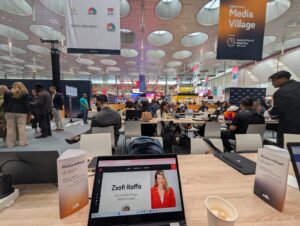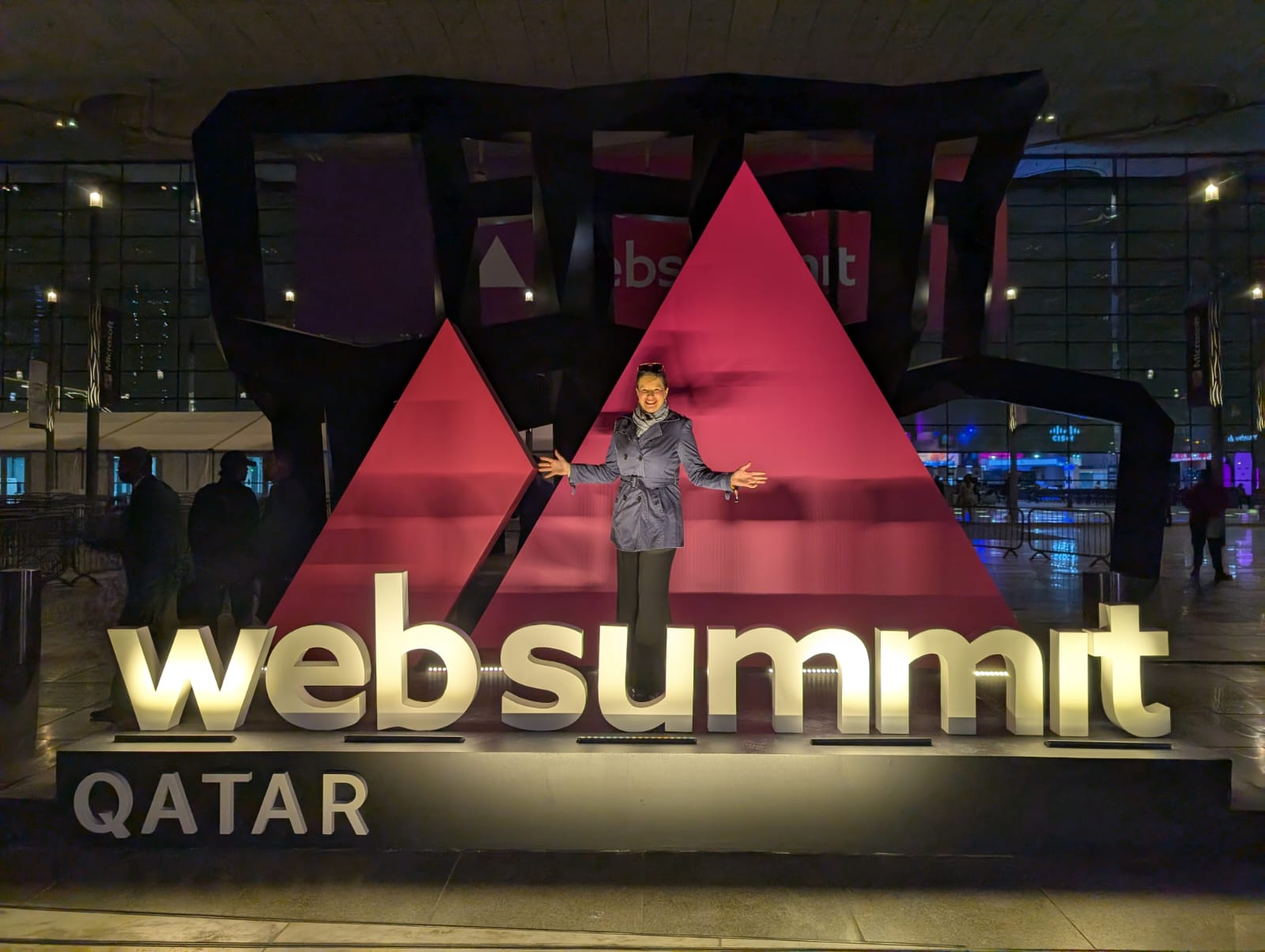Middle Eastern countries are making one announcement after another about major developments in technology, AI, and infrastructure. Alongside the US and China, their investments and commitment clearly show they are actively shaping the future.
Abu Dhabi has unveiled a $330 billion budget to support infrastructure, including data centers and leading technology companies. Saudi Arabia has committed $100 billion to AI and data infrastructure and, in mid-February, hosted the LEAP conference, which attracted over 200,000 attendees.
For comparison, the 59th CES in Las Vegas had 141,000 attendees, while LEAP, now in its third year, drew 200,000 participants. Almost two weeks later the region was still excited for technology updates and the two years old Web Summit Qatar welcomed 26,000 attendees from 130 countries.

Web Summit Qatar is part of the country’s 2030 plan, which aims to create 26,000 jobs and position Qatar among the top 10 nations on the Digital Competitiveness Index. The country’s leadership in AI innovation is driven by its National AI Strategy, which aims to build a complex ecosystem projected to reach $58.8 million by 2026.
Unlike in the US or Europe, where the private sector leads AI and technology investments, Middle Eastern governments not only recognized but utilise data and technology as the new oil. They are actively supporting their economies in the business – pipelines, investing heavily in digital transformation.

Seeing is believing. End of February, I was invited to Web Summit Qatar as a journalist. I was excited to attend and to explore this rapidly growing tech landscape and gain firsthand insights into the region’s ambitions.
The Rise of Technology in the Middle East
Over the past years, the Middle East, especially cities like Dubai, Abu Dhabi, Riyadh and Doha have become digital innovation hubs. The region is full of young, ambitious people, who understand the changes and are eager to do impact.
Thanks to the young and mobile generation, the key digital trend, which drives this shift is the growing dominance of mobile-first strategies.
In the Middle East, mobile connectivity is essential for a simple, everyday life. Apps across various sectors, from transportation (i.e.: Careem, Uber), gastronomy (i.e.: Snoonu, Careem) and e-commerce (i.e.: Souq, Noon) to entertainment and payments (i.e.: Alipay, Apple Pay, Google Pay), have transformed how people engage with services and consume products.
Ride-hailing and delivery apps have revolutionized mobility and convenience, while e-commerce platforms facilitate the growing shift to online shopping. Digital payment systems streamline transactions, reducing reliance on cash and enhancing financial inclusion.
These apps contribute to the region’s tech-driven economy, making life easier and with some click getting getting a reliable, comfortable delivery.
Some apps are outstanding not only for the citizens but also for visitors. One of the best examples, is WhatsApp. Its being central to both personal and business communication. At trade shows, WhatsApp numbers were more sought after than LinkedIn connections, highlighting its importance as a communication and networking tool.
Unlike Europe, where global apps easily enter the market, many struggle in the Middle East due to cultural, regional and regulatory differences. Qatar has a more conservative cultural than Europe, which requires apps to adapt to local values, especially concerning privacy, online content, and the portrayal of women.
Qatar has its strict data protection laws require foreign apps to either store data locally or partner with local entities, complicating operations. The market also favors local payment systems, such as QPay, over international services, hindering the integration of global financial apps. Regional apps, like Snoonu, a leading super app in Qatar, have a deeper understanding of local needs and preferences.

Snoonu, which offers food delivery, e-commerce, and other services, has successfully expanded its reach by acquiring Oman’s Akeed and forging key partnerships, such as with Yuno for payment solutions. This partnership is a great example, how international players work together with local providers and establishing regional offices. Yuno is a well-known player at fintech, it enables businesses to integrate over 1,000 payment methods and scale operations. Local platforms like Snoonu, with their tailored services and strategic partnerships, often outpace global apps in Qatar and the region due to their cultural relevance and regulatory compliance.

Social media platforms are the other aspect of the mobile first technology. X, Snapchat, Instagram and TikTok are leading not only marketing but also in the news. Unlike Europe, where businesses getting slowly involved with these businesses, where they are essential.
During Web Summit Qatar, Antoine Caironi, MD MENA X explained, governments use X for major announcements in the region while businesses and cultural entities leverage the platform to engage with audiences. With rapid tech adoption, smart city initiatives, and frequent global events like the FIFA World Cup the region is always on spot of the platform.
Sandi Kandil from Tiktok emphasized that traditional marketing messages are becoming less effective, making community-, and influencer driven content crucial. Advertisers prefer working with influencers rather than using traditional PPC campaigns in the region because they know the audience better. One of the, best example is real estate, properties are sold through Instagram reels and TikTok videos because a shiny, well-edited video can easily go viral.
With my talks with European decision makers, I often feel that they still do not give enough attention for these channels and they still use the company profiles to share product-oriented posts rather than utilize creators.
Data Privacy:
Digital transformation, particularly in areas like artificial intelligence (AI) and data-driven technologies, data privacy and security have become major concerns, both regionally and globally. Governments across the GCC align with international standards like the EU’s General Data Protection Regulation (GDPR). Regards to AI regulations, the EU has stricter data policy, which focuses on ethical and responsible use of AI. The regional regulations are still developing and don’t offer the level of detail seen like the EU AI Act.
Qatar, for instance, has implemented the Data Protection Law to strict privacy policies when handling personal data. This law is part of a broader effort to create a secure digital ecosystem in order to manage the complex AI infrastructures.
At the Web Summit in Qatar, experts discussed the commitment to transparent and secure data frameworks as it embraces AI and machine learning technologies.
Rami Elkhatib from Acero Capital discusses the current cybersecurity challenges how “Software is eating the world. Almost every company, regardless of industry, now operates as a software company with frequent releases.
Compared to last November, Lisbon Web Summit, there were many discussions around AI-driven threats such as email phishing and deepfakes, and discusses the growing risk of attacks on AI systems, including data poisoning and prompt injections. Legacy cybersecurity vendors and outdated tools create major challenges, as they generate massive amounts of alert noise, complicating the detection of actual threats.
A growing concern is the rise of AI attacks, with an alarming 26 billion attacks per month targeting application software and APIs. Elkhatib stresses the importance of real-time visibility in cybersecurity, advocating for software agents that provide intelligence within applications to enhance threat detection and response.
What’s next?
- Stay Ahead: Subscribe to my #zSofisticated Newsletter for expert insights, tips, and strategies, or visit my website, zsofisticated.com, for further guidance on transforming your marketing with AI, please contact me on zsofia.raffa@pixellions.com
About the Author

Let’s make things #zSofisticated!
Zsofia Raffa is a global digital marketing strategist, AI consultant, and freelance journalist with a passion for storytelling and innovation. With over 15 years of experience, she has helped brands like Kodak, NVIDIA, BlackRock, and Lufthansa shine in the digital space.
She specializes in digital marketing, AI consultancy, and content strategy, crafting strategies that turn data into compelling stories and drive real results. As a journalist and blogger, she creates emotionally engaging content on marketing, AI, and digital strategy.
A LinkedIn powerhouse, Zsofia has mastered social selling, lead generation, and personal branding, helping professionals and businesses maximize their online presence.

